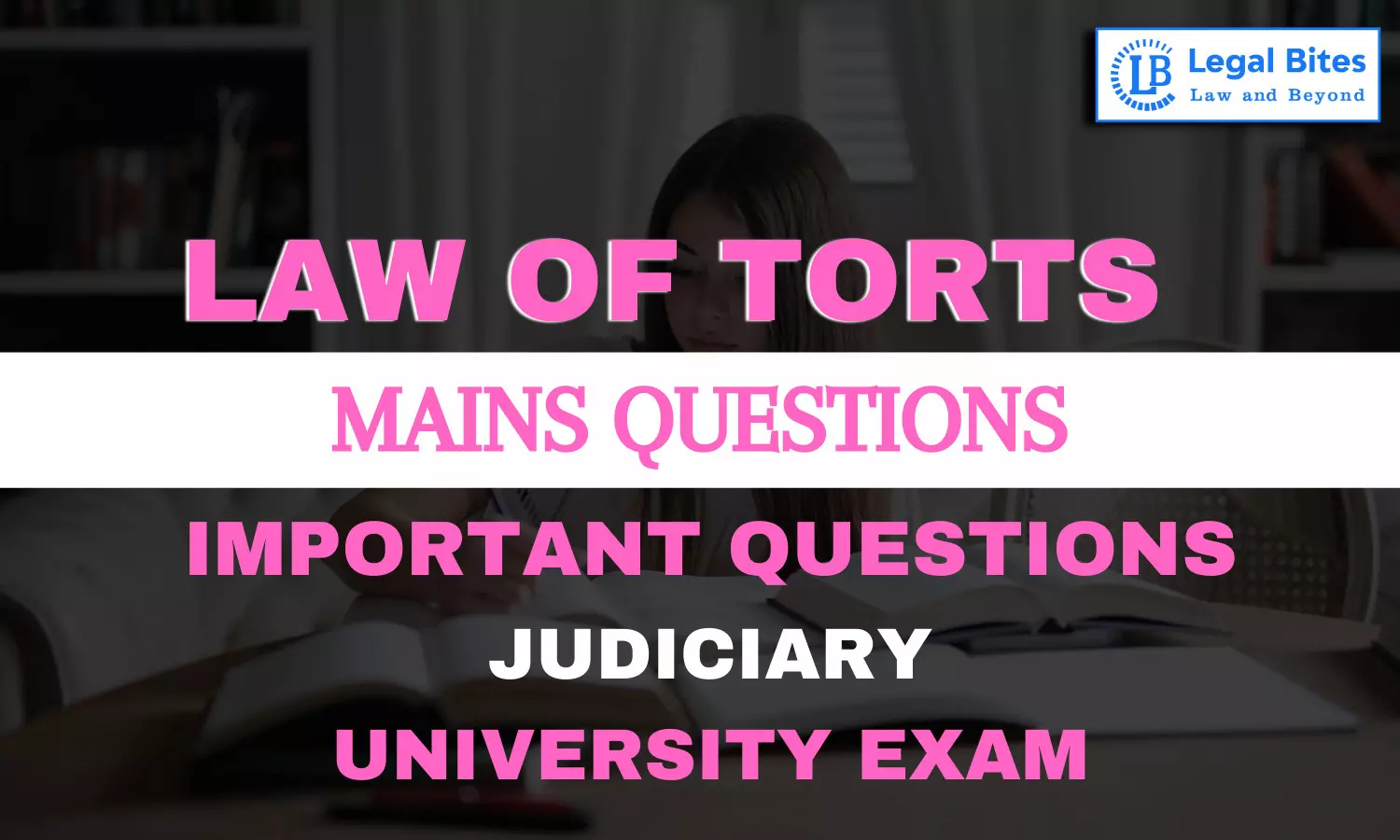Law of Torts Mains Question Answer Series 3: Important Questions for Judiciary Exams | Part – III
Legal Bites presents the Law of Torts Important Question-Answer Series. The questions listed here will help students study for various Competitive and University Exams.

Legal Bites presents the Law of Torts Important Question-Answer Series. The questions listed here will help students study for various Competitive and University Exams. Candidates can use Legal Bites' list of questions to help them determine the most important and often asked questions and practice their aptitude and knowledge.
Answering questions is a continuous process that is an inevitable component of any test preparation, as we all know. A well-written response displays not just a candidate's knowledge but also his or her ability to tailor the content to the question's requirements.
It is vital to prepare for this exam to pass it thoroughly. To attain mastery over the subjects studied, applicants only need to keep practising these questions in the months coming up to the examinations. Following it, the candidate's confidence level, as well as their scores, will vastly improve.
Law of Torts Mains Question Answer Series 3: Important Questions for Judiciary Exams | Part – III
Question 1:
Explain with illustrations the maxim "Volenti non-fit injuria". [BJS 2000, DJS 2005]
Question 2:
Is an infant liable for Torts? [ RJS 1986]
Question 3:
'Slander is actionable per se'. Evaluate [BJS 1977]
Question 4:
Explain and illustrate the following:
Joint tortfeasors and contribution between them
Question 5:
Question 6:
What limitations are there to the maxim respondeat superior?
Question 7:
What is meant by contributory negligence?
